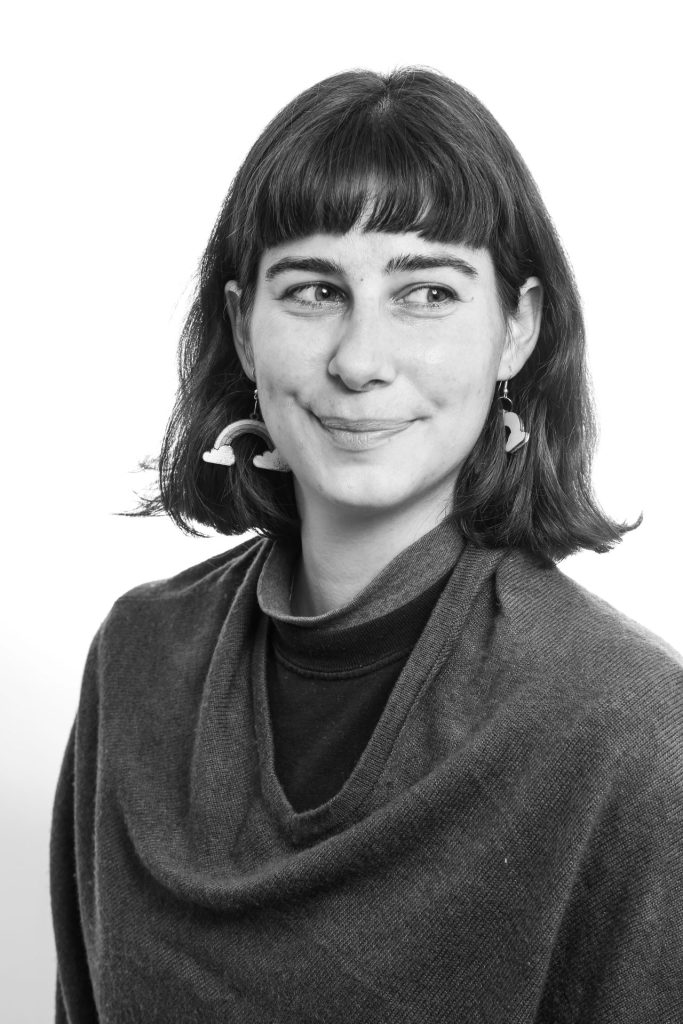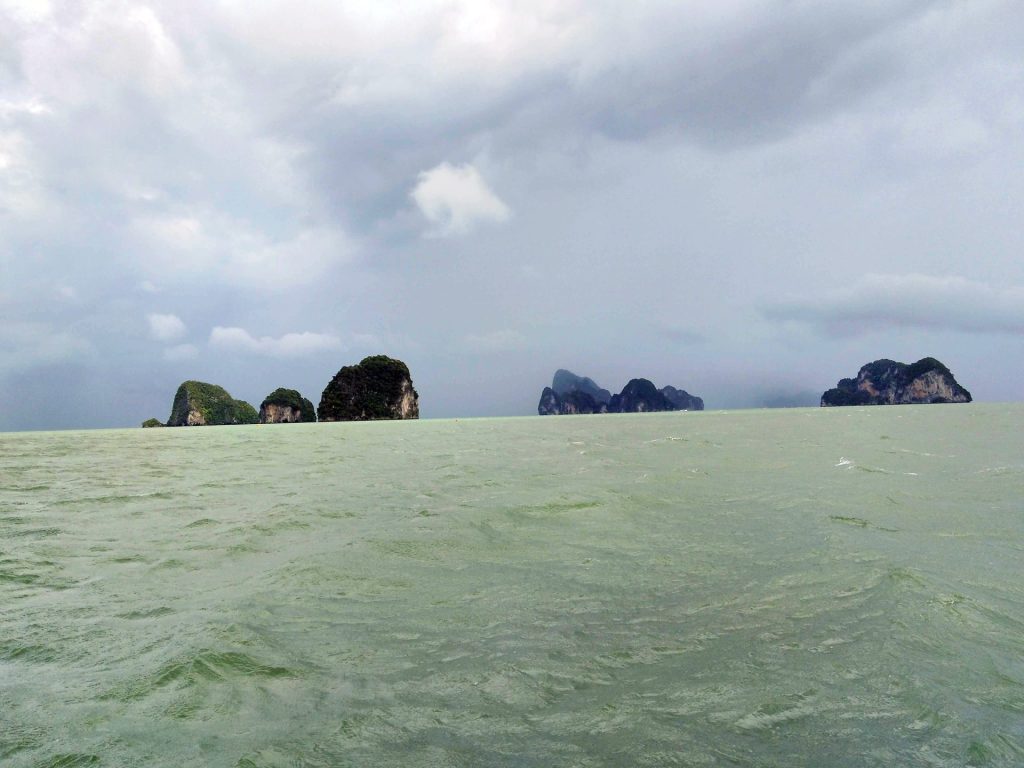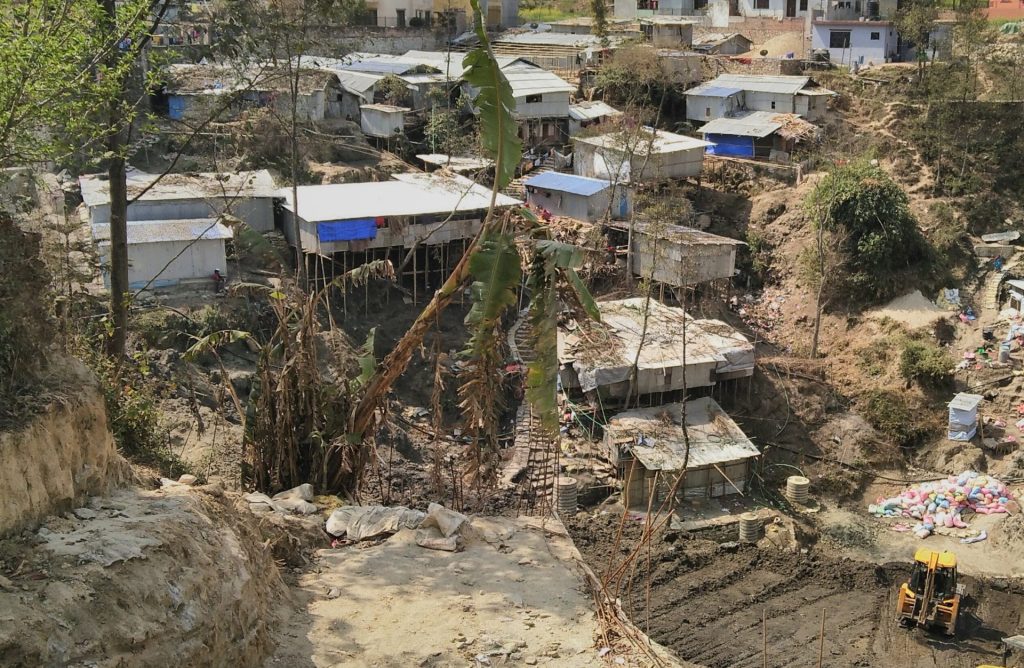Jaehn, Miriam
VISITOR’S VOICE
Interview with Miriam Jaehn »

Remaining Unsettled – Issues of Forced Migration Research
01
Please tell us about your research.
My research focuses on refugees in South and Southeast Asia. At the moment, I specifically focus on the Rohingya community, which has experienced exclusion, persecution, and forced migration for decades. My dissertation examined Rohingya journeys to and experience of displacement (living in exile, mostly without legal recognition) in Nepal and Thailand. For my new project at CSEAS, I investigate family lives in the Thailand-Myanmar, Thailand-Malaysia, and Bangladesh-Myanmar borderlands to compare how experiences of displacement in specific places of (temporary) settlement influence norms of ‘doing’ family and gender.
02
How many research themes do you have?
At CSEAS, I mainly focus on the ‘re-doing’ of family among Rohingya refugees in South and Southeast Asian borderlands. If time allows, I will continue working on a book proposal based on my dissertation that focuses on journeys and the constitution of refugee diasporas.
03
Why do you find your research topic interesting?
As most people would acknowledge by now, we live in times of increasing migration and for decades, displaced populations have also been on the rise. It is important to recognize that these peoples’ lives have been marginalized and created as an exception. But refugees and their lives should not be ignored and written off as marginal issues that do not concern us.
04
How did you get started in your research, and how did you come to focus on your current research?
I came to my current research through a series of curious coincidences – personal and professional. Since I was a child, I was exposed to different cultures and peoples through visitors to my family home and through travel. During my undergraduate studies (in History) at Bielefeld University and Paris Diderot 7, I learned more in depth about Asia’s contemporary and modern history which led me to write my bachelor’s thesis on Vietnamese resistance to French colonialism in the 20th century. During my masters degree study (in Modern South and Southeast Asian studies), I developed a greater interest in Thailand and Nepal, which led to an encounter with a friend working with Rohingya and a visit to the Mae La refugee camp in Thailand in 2016. That eventually led me to research Rohingya refugees in South and Southeast Asia for my PhD dissertation.

05
Have you had any difficulties in putting together the results of your research into a research paper or book?
Putting together research results is always a big challenge and a never-ending learning process. Writing a research paper and an academic book is in the best of cases not simply descriptive, but it is about conceptualizing and theorizing issues to understand them more fully. Yet, this process of abstraction should not lead to making your work and research completely inaccessible to people interested in and concerning your work.
06
Can you share with us an episode about any influential people, things, and places you have encountered whilst doing your research?
First, obviously my short stint in the Mae La refugee camp, with the help of Dr. Naruemon Thapchumpon, was extremely important in triggering and directing my interest in refugee issues. Then, during my PhD research, everyone who helped me in the field was extremely important. I have an enormous amount of gratitude and respect for them. I was showered with so much hospitality and willingness to share their knowledge and experiences with me. As an example, once, I was so exhausted from my research travels that I fell asleep in the living room of a Rohingya family after interviewing them. While I was sleeping, they covered me with a blanket, darkened the room, left it, and spoke with muted voices, only to prepare some tea and snacks as soon as I woke up. This incident was exemplary of the care and protection I received by people who enjoy little safety or protection themselves; it was very impressive. Lastly, I must say that a supervisor can occupy an extremely influential position in shaping who you become as a researcher. Mine certainly did as he continuously offered me his support. It is also partly thanks to my former supervisor, Professor Itty Abraham, that I met Professor Decha Tangseefa and found out about the JSPS program so that I could come to CSEAS as a postdoctoral researcher.
07
Which books or people have influenced you?
I am very much intrigued by Anna Lowenhaupt Tsing’s writing. She writes so beautifully and her books are immediately recognizable by her own, unique style. This is also true of bell hooks, who teaches us to write from pain and to be radical. I further enjoy being inspired by literature – such as Salman Rushdie’s works – to develop my writing style through paying attention to how they create a rhythm, flow, and imagery with their use of language.
08
What is your ideal image of a researcher?
I do not think that there is an ideal researcher. However, I admire researchers who have a genuine connection to but still maintain a critical and curious view of their research topic and those who can continuously and creatively re-engage with their work on a conceptual and theoretical level. In some sense, they must still be unsettled by their research topic and be able to unsettle their readers through their writing.
09
Do you have any must-have gear for field research and writing?
Must-gears in the field and for writing are not so much technical equipment, but matters of the mind. Time and patience are most necessary, as well as understanding and empathy for those we work with. For ourselves, we must continuously strive to learn, remain humble, and be persistent – especially when it comes to writing and experiencing rejection. Being an early career scholar, I am probably still quite idealistic, right?
10
Do you have any essential reads (books) that you can recommend to younger people?
I would recommend students to read as much as possible to find out which authors inspire them. This can be quite a personal choice. But they should never be afraid or refrain from reading books from so-called difficult authors. It is not about understanding a book or an author the first time you read them. Some works need to be continuously re-read, especially if we want to relate them to our own work. So, be daring in your reading! And if it does not work out the first time, put the book aside for a few months and then try again.
11
Do you have any advice for those who aim to become researchers?
Do not study only based on the curriculum. What I mean by that is not to study for the grades, but to study from a desire to learn and understand. This sometimes involves taking risks and doing thought experiments. I always enjoyed teaching students who did more than learning the ‘model answer’ by heart to get an A on an exam.
12
What are your future ambitions as a scholar?
With my postdoc at CSEAS, I hope to publish not only an article, but also to work on publishing a special issue in cooperation with other scholars. Following my postdoc, I would love to turn my dissertation into a manuscript for a monograph and to find a more permanent position as an Assistant Professor. This would preferably be at a university with a collegial work environment that allows researchers enough time to work on well thought-through papers rather than emphasizing the quantity of papers published. Who knows if that is possible.
(December 2022)
References
hooks, bell. 1984. Feminist Theory: From Margin to Center. Boston, MA: South End Press.
Rushdie, Salman. 1981. Midnight’s Children: A Novel. New York: Knopf.
Tsing, Anna Lowenhaupt. 2017. The Mushroom at the End of the World: On the Possibility of Life in Capitalist Ruins. Princeton, NJ: Princeton University Press.
Miriam Jaehn is a Guest Research Associate of CSEAS
from November 2022 – November 2024
